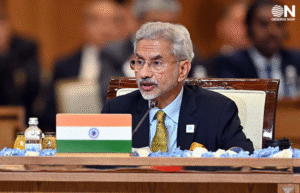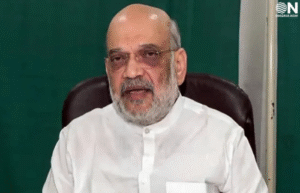PM Modi Announces Rapid Expansion of India’s Nuclear Energy Capacity

Prime Minister Narendra Modi has announced significant progress in India’s nuclear energy sector, with plans to construct 10 new nuclear reactors as part of the country’s long-term strategy for energy independence. The announcement, made on August 16, 2025, underscores the government’s commitment to diversifying the nation’s energy mix, enhancing clean energy production, and promoting sustainable development. By rapidly expanding nuclear power capacity, India aims to meet growing energy demands while reducing reliance on fossil fuels and minimizing environmental impact.
The new reactors are part of a broader effort to modernize the nuclear energy sector, which includes significant reforms and the introduction of private sector participation. These reforms are designed to attract investment, promote innovation, and accelerate project timelines, ensuring that nuclear power becomes a reliable and scalable source of electricity for the country. By opening the sector to private companies, the government seeks to leverage expertise, efficiency, and resources from industry partners while maintaining strict safety and regulatory standards.
According to the Prime Minister, the expansion of nuclear energy is aligned with India’s vision of achieving tenfold growth in nuclear capacity by 2047. This ambitious goal reflects the government’s long-term planning for sustainable energy development, positioning nuclear power as a critical component of India’s low-carbon energy strategy. The new reactors will be strategically located across various states, ensuring regional energy stability and contributing to national energy security.
In addition to increasing electricity generation, the expansion aims to create opportunities for research, innovation, and employment in the nuclear sector. Engineers, scientists, and technical personnel will play key roles in constructing, operating, and maintaining the reactors, fostering skill development and technological expertise within the country. The initiative also supports India’s broader objectives of technological self-reliance and indigenous capacity-building in advanced energy systems.
Safety remains a top priority in the government’s nuclear energy plans. The reactors will comply with stringent international safety standards and incorporate modern design features to mitigate potential risks. Regulatory oversight, emergency preparedness, and environmental monitoring will be integral to the operation of the new facilities, ensuring that energy production remains both safe and sustainable.
The move is also expected to enhance India’s global standing in clean energy innovation. By rapidly deploying nuclear technology, India can demonstrate leadership in reducing carbon emissions and contributing to global climate goals. Nuclear power, as a low-emission and highly efficient energy source, complements renewable sources such as solar and wind, creating a balanced energy portfolio capable of meeting future demands.
Overall, the announcement of 10 new nuclear reactors highlights India’s proactive approach to energy security and sustainability. By combining policy reforms, private sector collaboration, and strategic planning, the government is laying the foundation for a robust nuclear energy program that supports economic growth, environmental protection, and long-term energy independence. As the projects move forward, India is poised to strengthen its energy infrastructure while fostering innovation, technological excellence, and sustainable development for generations to come.
















